Digital marketing is a complex process, using a wide range of strategies and features to resonate with potential customers. Search engine optimization, or SEO, is the core of any digital marketing campaign; SEO influences every aspect of the campaign, helping people to discover information about the services a given company offers. SEO for insurance agents incorporates the same principles as in other industry sectors, but one of the primary differences is the importance of keywords in creating search-friendly content. Keywords are a critical part of SEO, and in this guide, we’ll explore tips for building an effective keyword strategy, targeting keywords that produce the desired results in website traffic and search visibility.
Keyword Research: Where the SEO Campaign Begins
Most people understand the importance of keywords in search. These words and phrases are the ones entered by search engine users to find information about a company and its products or services. Keywords have evolved over time, however, and an effective keyword strategy goes far beyond what users type into the search field of their favorite search engine.
How does an SEO professional pinpoint the appropriate keywords and phrases to incorporate into website content? Keyword research is the means by which this is achieved, and just like keywords themselves, the research strategy has evolved. Most professionals use search volume data to discover keywords, collecting and analyzing data from numerous sources in a quest to identify high-volume, low-competition keywords. Traditionally, SEO professionals would use tools like Google Keyword Planner to make discoveries about keywords and related terms, but this tool is limited in its scope.
Keyword research must reach past these limitations, adding new techniques to the process. One of these techniques is the application of search intent, or the concept of understanding what a given search user is actually looking for, even if the words he or she types into the search box may indicate something else. Modern search engines are capable of discerning user intent in ways that were impossible only a few years ago; Google has implanted machine learning and artificial intelligence technologies in its search algorithm to better understand intent. One practice that SEO professionals can use is the act of identifying keywords, then running test searches in Google. Studying the results, particularly in top-ranking results as well as special content and featured snippets on the results page, can unlock words and phrases that can drive traffic toward a given website.
Content Development: Niche Topics and Related Keywords
With a little old-fashioned testing in search engines, a plethora of keywords can be discovered. There’s an added benefit to this strategy, and that is of spurring content development. The keywords and phrases discovered may point to new ways of presenting information to site visitors; they may indicate interest in niche or related topics. For example, in SEO for insurance agents, information related to the search term “commercial insurance” can mean developing content on specific liability insurance types such as errors & omissions, pollution liability, and workers’ compensation plans, only to name a few of the many possibilities.
Webpage Optimization Using Keywords
As mentioned in the introduction, keywords form the foundation of any SEO campaign. While traditional single-word instances of a given keyword are no longer as valuable as they once were, they still reign supreme in the arena of webpage optimization. In the early days of digital marketing, simply having target keywords in webpage content was sufficient to satisfy search engine algorithms. Now that the search engines are far more advanced, where the keyword(s) appear is even more important that just ensuring they were in the page body. This aspect of an effective keyword strategy, called on-page optimization, is to place target keywords in specific locations, helping search engines index content accurately and delivering relevant results to search users.
Where should these keywords be used? There are several possibilities, and a smart SEO service professional will ensure that the desired keywords or phrases appear in locations like:
- In the page title. If available, adding the keyword to the SEO title tag is a great practice.
- In image filenames on the page, including ALT text.
- In the content itself, avoiding keyword “stuffing” and incorporating the keyword or related phrases and similar terms in a natural manner.
- In at least one of the page subheadings, if possible.
- In the page’s first paragraph of text content.
- In meta descriptions for each page.
Not all of these keyword placements may directly affect rankings in search results, but these placements do assist with properly indexing page content.
With these three factors in mind, effective keyword strategies can be developed. SEO for insurance agents can be a complex process, but with the right amount of research, data analysis, and industry best practices in place, it is possible to both improve organic traffic and add valuable search visibility to websites.
About Neilson Marketing Services
Since 1988, Neilson Marketing has been implementing innovative marketing solutions and strategies for our clients in all areas of marketing. Contact us today at (866) 816-1849 to put our talent, expertise, and vast resources to work for you. Let’s make things happen, together.

